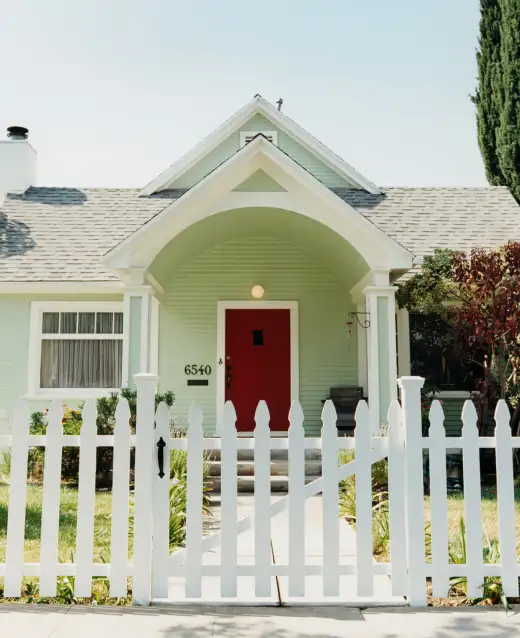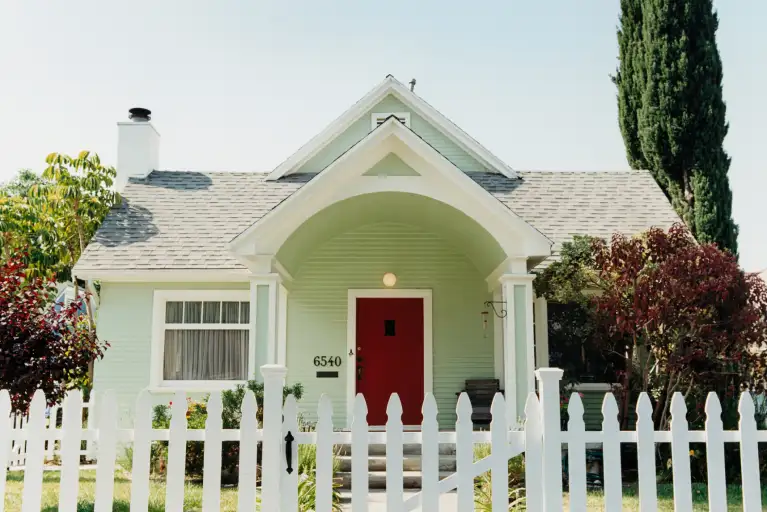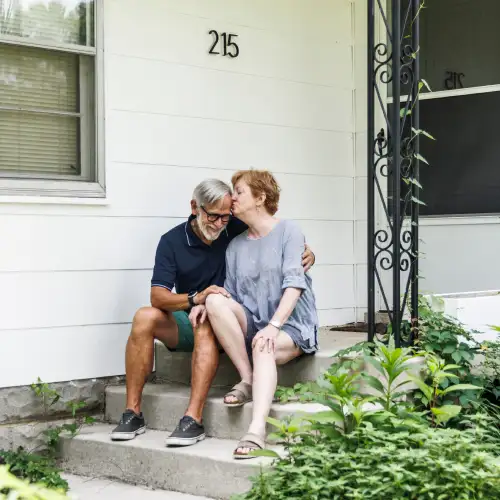What are closing costs on a house?
Closing costs are the fees and expenses you pay when you finalize your home purchase. These costs come up at the end of the buying or selling process, right when the property title is transferred. They can vary a lot depending on where you are, the type of property, and the specifics of the sale. They cover all sorts of expenses, from the costs associated with the property itself to the services provided by the mortgage lender. Heads up: your down payment is separate from these expenses.
Closing costs are the fees and expenses you pay when you finalize a real estate deal. These costs come up at the end of the buying or selling process, right when the property title is transferred.
Both the buyer and seller pitch in on these costs, but the buyer carries most of the weight. Buyers pay their share out-of-pocket while sellers typically have their portion of closing costs deducted from the proceeds of the sale.
How much are closing costs?
On average, closing costs come out to about 2% to 6% of the loan amount. That means if you have a loan for $300,000, your closing costs could land anywhere from $6,000 to $18,000. If you have a little sticker shock, that’s okay.
A lot of buyers are surprised by how many services and fees go into making homeownership happen. The exact percentage you’ll owe comes down to the type of loan (like a conventional loan or government-backed loan), the home’s value, your lender’s policies, state laws and other factors.
- 2% to 6% of the loan amount
Who pays closing costs?
Buyers and sellers share the burden of closing costs, but buyers rack up the bigger tab. As a buyer, you’re typically responsible for costs related to the mortgage, legal fees, homeowners association fees and prepayments for insurance, as well as taxes. The seller will often cover things like the real estate commissions and title transfer fees.
The good news? You can often negotiate these costs down with something called seller concessions.
What are seller concessions?
Seller concessions are expenses that a seller agrees to cover on behalf of the buyer. Concessions are more typical in a buyer’s market, where sellers are eager to seal the deal because there isn’t much demand for their home. If you can negotiate on seller concessions and take some fees off your plate, it can save you hundreds to thousands of dollars.
Seller concessions are expenses that a seller agrees to cover on behalf of the buyer.
It's important to note that seller concessions have a limit—they can only make up a certain percentage of the mortgage amount. This percentage depends on several factors, including the loan type and the home’s appraised value or its purchase price, whichever is lower.
With concessions in mind, what are the closing costs for a buyer after seller concessions? Let’s take a peek at some common loan types and how much seller concessions can bring down your bill at closing.
| Loan type | Seller concession limits | Example with a loan of $300,000 |
|---|---|---|
| Conventional loans | 3% - 9% of purchase price or appraised value, depending on size of down payment | $9,000 - $27,000 |
| FHA loans | Up to 6% of purchase price or appraised value | Up to $18,000 |
| VA loans | Up to 4% of purchase price or appraised value | Up to $12,000 |
| Jumbo loans | Vary widely, typically 3%-6% of purchase price or appraised value | Typically $9,000 - $18,000 |
How to calculate closing costs
You already know that closing costs will add up to be 2% to 6% of your loan amount, so you can do the math to get a ballpark figure. For a more accurate number, you’ll want to get your hands on a mortgage document called the Loan Estimate, which outlines the terms and expenses.
You’ll get the Loan Estimate shortly after submitting your mortgage application. When you get it, give it a good once-over and reach out to your lender with any questions or concerns.
At least three business days before closing, you’ll get the more official Closing Disclosure document, which lists the final closing costs. You’ll definitely want to compare the Loan Estimate to the Closing Disclosure and review what’s changed with your lender.
What’s included in the closing costs?
Your head may spin once you see all the different fees listed on your Closing Disclosure, but don’t worry! To help demystify this part of the home buying journey, here’s a mini glossary of key terms related to closing costs and fees. Keep in mind that this is just a general guide—your closing costs will depend on your property, loan, state and lender.
Closing Costs Glossary
Some lenders charge a fee of $75 to $500 to process your application. This could be a one-time fee, or it might be used as a deposit towards other closing costs.
Your lender will need to know that your soon-to-be home is worth the amount you’re borrowing. This is why they hire an appraisal company to decide the home’s actual value, which will cost you $300-$600.
Otherwise known as title agent fees, some states require an attorney to help you cross the finish line, from coordinating closing to handling the title transfer paperwork. Those fees will depend on your state and attorney’s rates.
This fee goes to the escrow company or attorney handling the closing meeting. The amount will vary, especially if your state requires a lawyer to be there on closing day.
Yes, your lender may charge you for transporting the mortgage paperwork. Luckily, it will be a pretty low cost—usually around $30.
This is the cost of pulling your credit report and score, usually between $10 and $100.
Did you know you can pay upfront to lower your interest rate so you can save money over the life of your loan? These are called mortgage discount points, and you’ll pay 1% of the loan principal to knock off one point from the interest rate, which is usually a 0.25% rate reduction. Want an example? Say you’re taking out a mortgage of $300,000 at 7.25% interest and you want to buy one discount point. That means you would pay $3,000 at closing to trim your rate to 7.00%.
Also called reserves or prepaids, escrow funds are set aside in a special account by your lender to cover future costs like property taxes, homeowners insurance and mortgage insurance. You’ll probably have to deposit two months’ worth of these expenses into an account at closing.
If you’re getting an FHA loan, you’ll need to pay an FHA mortgage insurance premium (MIP) at closing. After closing, the MIP will be tacked onto your monthly mortgage bill. However, if you put down more than 10%, MIP will only last for 11 years.
Flood insurance is a separate policy that can cover buildings, the contents in a building or both. If you’re looking to settle in or near high-risk flood area, you can use FEMA’s Flood Map Service Center to see if your home is in a flood zone and needs special insurance.
If you’re buying into a community with an HOA, this transfer fee covers moving the HOA fees from the seller to the buyer. Most of the time, this charge falls on the seller’s shoulders.
Most lenders require you to get homeowners insurance, which covers you financially against risks like natural disasters, house fires, theft and vandalism. You’ll likely have to put a year’s worth of homeowners insurance into your escrow fund at closing. Homeowners insurance is usually about $50 per $100,000 in home value every month. So, if your home is worth $300,000, you would be putting about $150 a month towards homeowners insurance. That would amount to about $1,800 toward your escrow fund to cover homeowners insurance.
Was your home built before 1979? If so, you’ll have to pay about $300 to test for lead paint. This is an important step to protect you and your family from lead exposure.
This one-time fee (usually 0.5% to 1% of the mortgage) protects the lender just in case you lose your home in a title claim. Keep in mind, this is a separate fee from owner’s title insurance.
This fee pays for processing and underwriting your loan and costs about 1% of your loan’s value.
Owner’s title insurance is an optional cost that will protect you just in case the previous homeowner (or anyone else) makes a claim on your home and brings a lawsuit. You can expect this to cost 0.5% to 1% of the home’s price tag.
Some states and loan types, like VA loans, require you to make sure no unwelcome critters reside in your home. This fee might also be necessary if the appraiser suspects a pest problem. The inspection runs at about $100 and can be covered by the buyer, seller or lender depending on the circumstances.
Some lenders expect you to pay the interest that builds up between closing day and your first mortgage payment. The amount you owe will depend on your loan amount, interest rate and closing date.
If you put down less than 20% on a conventional loan, you might get stuck with private mortgage insurance to protect the lender just in case you don’t keep up with payments. Some lenders want to see your first month’s premium on closing day. PMI is usually $30 to $70 for every $100,000 you owe on your loan. So, if you got a $300,000 mortgage, that might run you $90 to $210 at closing.
Your property taxes will grease the wheels of the local community, funding public services like schools, roadways and emergency departments. On closing day, you may be required to put up a year’s worth of property taxes. Looking at the town’s public records and your appraisal value can help you ballpark how much you might owe.
Some lenders charge a fee to guarantee you can keep the interest rate you were quoted when you were approved for your mortgage—even if the rate goes up by the time closing day rolls around. This may add up to be 0.25% to 0.50% of your loan amount.
That’s right—your local government will charge you around $125 to update their public land records.
Some states want to double check your property lines before closing a sale. A land survey company will verify your property lines for $400 to $1,000, depending on your property size.
Your lender will hire a company to confirm your property taxes were tallied up correctly. Your bill for this depends on your home’s location and the company that’s hired.
A title search is conducted just to be sure the seller really has the right to sell. That means searching for claims against the property, like liens, bankruptcies or unpaid back taxes. A title insurance company or attorney will take care of the title search for about $75 to $200.
Yes, another tax for handling the paperwork. Your local government charges this fee for transferring the title of the property to you. This cost will vary depending on where you live.
If you are using a VA loan to purchase your home, you’ll have to pay a funding fee that goes towards administrative costs for the VA loan program. Depending on the down payment, your circumstances and a few other loan factors, you’ll owe 0% to 3.3% of your total loan amount.







